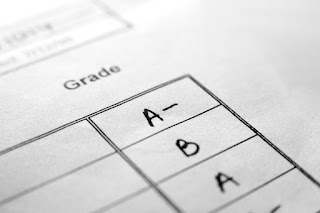You Have Everything YOU Need For a Good Education
Amy Barr with The Lukeion Project
The English word “education” comes from the Latin word educare, a verb that can refer to the process of bringing up children to adulthood or providing a wholesome place for animals or crops to grow. Modern usage would have us think that education is a commodity that we might purchase in the form of a book, a program, a class, or whole degree program. When we are done with one or all of these, we proclaim ourselves “educated.” The Latin word does not refer to any of these things, per se. Instead, one’s education is a matter of having a favorable environment or fertile soil for somebody (or something) to grow productively. Education, for much of human history, has been a personal choice and under our own control.In the Roman world, those that worked on a subject very diligently might eventually be considered doctus by others, meaning they were well-informed, experienced, and clever. Doctus is a passive participle of doceo, a verb which means “teach” (a doctor was a teacher not a medical expert). Somebody who is doctus has been “taught” but not necessarily by others and certainly not in some established program. Remove your modern sensibilities about being taught. The English words we use to define doctus or docta have more to do with how one treats oneself as one builds one’s own learning environment. A well-informed, experienced, and clever person takes the initiative to self-educate regardless of one’s station in life.
The most brilliant men and women in history have been autodidacts who, until very recently, had zero framed diplomas hanging in their offices. Degrees, as such, didn’t factor into anyone’s career qualifications until the far more recent past. The notion of placing a measure (and certificate of completion) on one’s education was not something that most people thought about until public education compelled us to think in terms of something that could be measured, quantified, qualified, and marketed to the human race.
Greek philosopher Plato once said, “The first and best victory is to conquer self.” Aristotle, Plato’s student, listened carefully to his master’s words for 20 years and then reversed his opinion on most of Plato’s teachings to form his own thoughts. He famously said, “Through self-discipline comes freedom.” As he too would become an educator of famous people like Alexander the Great, Aristotle would also say “What lies in our power to do, lies in our power not to do.”
Education today is not something our Classical fore-bearers
would recognize or condone. Today we view education as a set of stairs. We climb
up some of those steps and celebrate when we’ve arrived at a certain stage while
we earn a slip of paper that some institution has issued to
say as much. Leaving behind all that was accomplished before, we climb a new set of slightly
more difficult stairs and look for new affirmations of completion until, armed
with seemingly enough certificates, we are deemed qualified. Those that didn’t
climb those particular stairs are not authorized to form opinions or advice in
that area. Such people are merely amateurs, a word that comes from the
word for love (amare) in Latin.
Modern education is a lucrative system that is jealous of all
forms of competition. We are told we aren’t qualified to do our own research
and we aren’t qualified to educate ourselves. Those who are home-educated must
simulate a public education by jumping through similar hoops in hopes of being issued
a graduation certificate which, despite numerous studies that prove that home
education is the far superior method of learning, is often considered sub-standard by
many secondary institutions. Many top universities are slowly understanding how valuable our home educated autodidacts are! The top skill mastered in home education is how to
educate oneself, a skill that becomes a game-changing advantage in college, graduate school,
career, and life. Those that don't want any part of that type of conveyor belt system are benefited as they teach themselves how to live the kind of life that interests them most.
Autodidacticism (self-education) is and has always been the most reliable method to become well-informed, experienced, and clever. Our own interests and passions are a powerful tool to compel us to excel. Autodidacts are never sated with mastering a single body of knowledge. Having learned one and then two, self-educators are driven to learn by their own interests. They choose to master more and still more. While such people often go on to collect a variety of degrees because they are still constrained by our modern system, they will always continue their own learning process provided they have life and breath.
As Plato points out, your first task is to master as an autodidact is self-discipline. Rising above your own lazy instincts to sleep more or play more means you’ll have the ability to push on, to persist in your efforts to master some topic or skill. If you have enough self-discipline to persist, there are no limits to your goals or ambitions. This is true freedom. The choice falls on you. You have control over your own timeline, effort, and skill. Degree programs might require a set number of years and certainly a prearranged fee, but a self-disciplined autodidact has control of his own time, her own effort, and the quality of all outcomes. Armed with far more educational materials and opportunities than history’s brightest minds, the best education today can be free, or nearly so.







